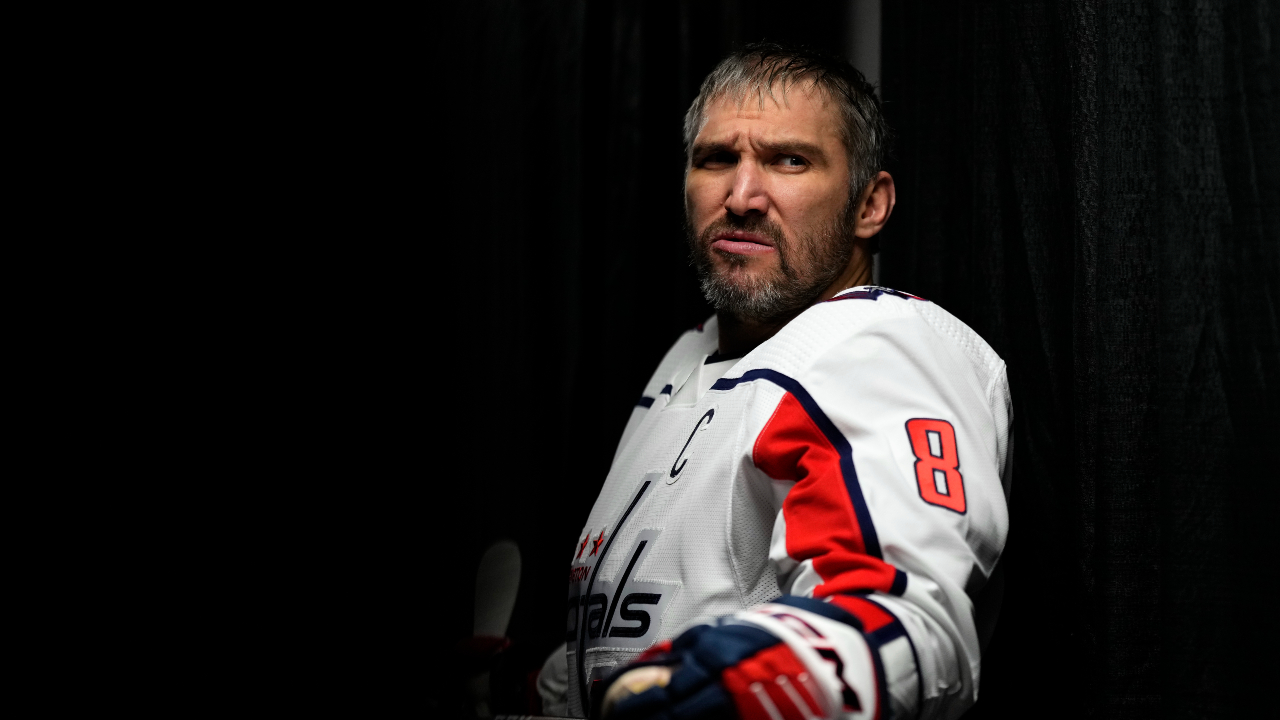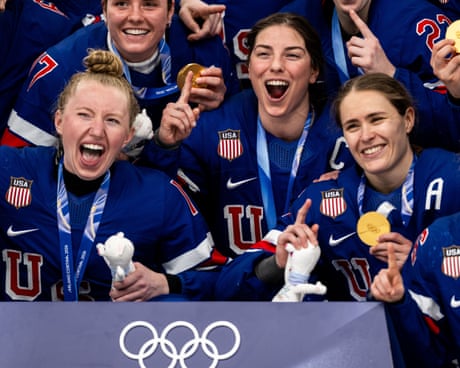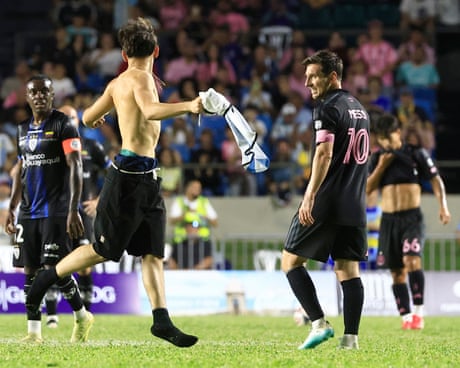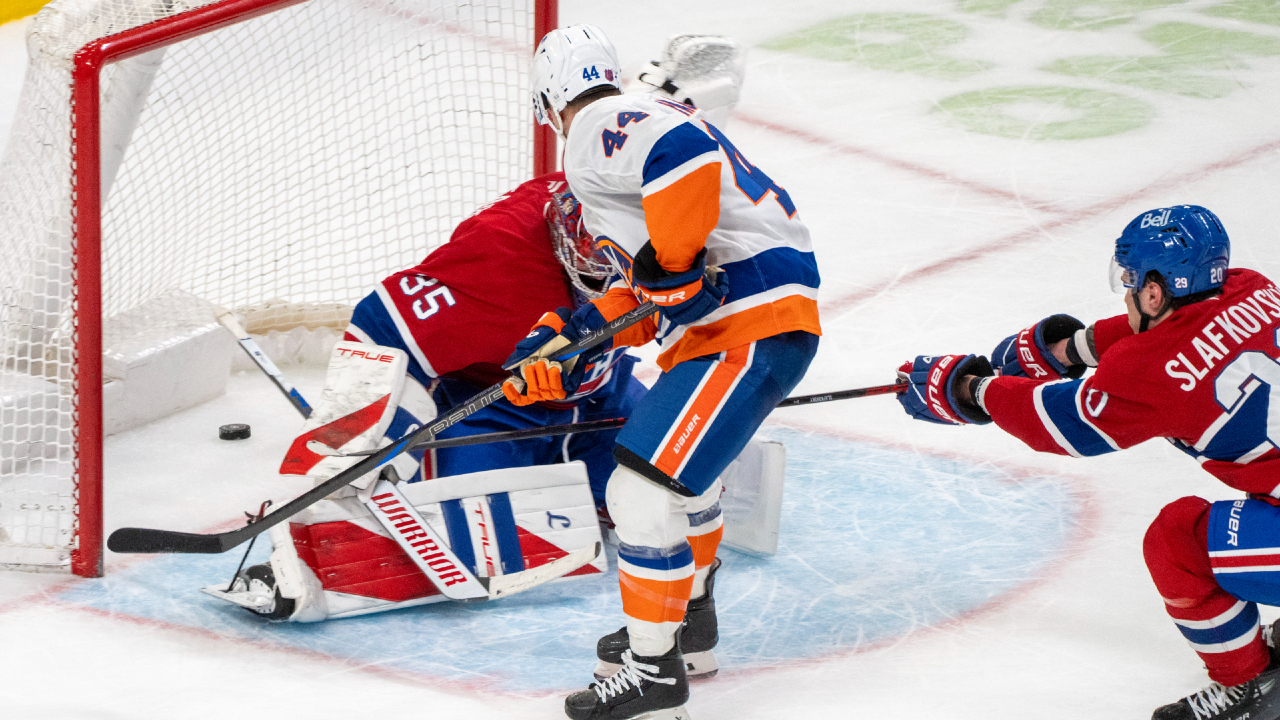
The morning before the night he hat-tricked his way to goal number 800 and grew hockey’s immortal duo into a club of three, Alex Ovechkin popped out of Chicago’s United Center bowels to watch the Blackhawks skate.
As Ovechkin watched his competition warm up his canvas, hockey’s purest shooter sported a Bulls-red hoodie emblazoned on its back with a winking phrase in white all-caps: “WELL I’M NOT MICHAEL JORDAN.”
Thing is, Alex Ovechkin is Michael Jordan.
A singular, special talent. A mercenary in the ring, whose individual drive and addiction to hanging mind-bending numbers has fuelled team success and eventually brought a parade to the sports-crazed city that drafted him. A rewriter of record books. The game he loves looks wildly different — better — since his arrival. (Perhaps, one day, the NHL will rename its Rocket Richard Trophy, awarded to its annual goal king, after Ovechkin the way the NBA just rechristened its MVP award after MJ.)
And much like prime Jordan, Ovechkin prefers to separate his personal politics, as hot and fraught as they are, from his awe-inspiring, age-defying pursuit of giants. Check: Passing Gordie Howe’s 801 goals. And then: Wayne Gretzky’s once-believed-impossible 894.
The other thing is, Alex Ovechkin is not Michael Jordan.
Jordan’s tack of political and social ambiguity was largely driven by economics, famously distilled in the basketball icon’s “Republicans buy sneakers, too” quote.
We know precisely where Ovechkin’s political allegiances lie.
How much we choose to think about them or influence our enjoyment of his fantastical athletic feats, however, is of personal prerogative. Some have no issue compartmentalizing art from artist, on ice versus off ice.
“If you’re a sports fan and you love Ovi, and you want to separate sports from politics and everything else, absolutely, he’s an amazing player. A fantastic, talented hockey player. In that aspect, you can’t really take anything away from him,” says Isabelle Khurshudyan of The Washington Post.
There is a but coming.
And the but is Ovechkin’s unveiled support of Vladimir Putin (featured in the player’s Instagram avatar) and his invasion of Ukraine. The hockey star toed the pro-Kremlin line, posing for anti-Facist propaganda during Putin’s original invasion in 2014.
In 2017, he created PutinTeam, a social movement to rally other Russian celebrities to support their national leader. And when given multiple opportunities to denounce his president’s inciting of war earlier this year, Ovechkin chose vague platitudes.
“I’m Russian, right? Something I can’t control. It’s not in my hands. I hope it’s going to end soon. I hope it’s going to be peace in both countries. I don’t control this one,” Ovechkin said.
Asked directly if he still supports Putin, Ovechkin replied: “He’s my president. I’m not in politics. I’m an athlete.”
And added: “It’s a hard situation right now for both sides.”
Khurshudyan is a self-described “recovering sportswriter” who covered Ovechkin and the Capitals beat, including their 2018 championship run, before she became the Post’s Ukraine bureau chief, reporting firsthand on the war.
The job switch gives her a unique and nuanced perspective on the Great 8, who has access to independent Western media, millions in the bank, and whom she believes could denounce the war — and change his profile pic — at no great danger.
“I do know that a lot more famous people than him, including a pop star, Alla Pugacheva — who’s really, really famous in Russia — have spoken out against the war quite pointedly and have been totally fine,” Khurshudyan says.
“He has the money. He has the ability to get his family out. It’s just more of an inconvenience, right? It would be socially uncomfortable for him. He has business deals there. Most of his social circle is, if not pro-war, still in Moscow. And if he spoke out against it — if he even believes that he is against it — he would probably not be going back for a long time. I think that’s a choice he doesn’t want to make because it would be uncomfortable more than anything else. But I don’t actually believe he would be in any kind of immediate danger or face any real consequence for that from Russian authorities.”
Hockey players are rarely probed about their political leanings, but Ovechkin has opened this door through public endorsement of Putin.
“It’s wrong. There is no ‘both sides’ of this or middle ground or nuance. I think it’s pretty clear that there’s a right and a wrong side. And when you don’t take a position on it, it’s the same as siding with sort of the bad guys in this case.”
Protests of Ovechkin’s stance have been scattered over the months since the invasion commenced. Ukrainian flags flew in Winnipeg and Edmonton when the Capitals rolled through. A small group of Putin opposers can be spotted outside Capital One on occasion.
NHL legend Dominik Hasek called for the NHL to ban all Russian players, and the Czech government threatened to prohibit Russian players from participating in this fall’s Global Series.
Ovechkin was asked one war question at his most recent training camp.
When the National Hockey League, buoyed by plenty of Russian stars, postponed its hopeful 2024 World Cup, it blamed “the current environment” for the delay. Which is quite the euphemism for Russia’s invasion.
The merriment over Ovechkin’s goal chase, considering the horrors overseas, doesn’t sit well with Slava Malamud, a former sportswriter for major Russian outlet Sport-Express, now living in the States.
“It’s being celebrated a lot, especially by hockey fans who are beholden to the creed of ‘please keep politics away from my sports,’ which just simply means ‘I want to enjoy my sports and don’t make me face real life,’ ” says Malamud, who began covering Ovechkin before he was drafted.
Malamud says he once had a personal relationship with Ovechkin that ended, in part, due to the athlete’s promotion of Putin.
“I personally think that not enough attention is being directed at who he is off the ice. I think that when you compare it to how the basketball players in NBA treat foreign statements by their stars, such as Kyrie Irving lately, for instance, then it shows really shielding Ovechkin from scrutiny and shielding him from any negative press.
“And it’s really a shame because there is genocide happening right now. Genocide has been perpetrated by the person Ovechkin has been very unapologetically and very unambiguously supporting over the last eight years.
“He is a very committed Putin activist. And the fact that he’s not being covered as such, and not being presented as such, is really a disservice to American journalism.”
A cultural and philosophical sway is at play here, one that North Americans might find challenging to understand.
Khurshudyan and Malamud both point out that Ovechkin is a product of a system. Russians are ingrained to blindly support their own government.
“That’s what the Kremlin has beat into people, this passive acceptance of what their government system is. And so that’s what Ukrainians have this anger toward Russian people about: It’s not that they think every single Russian is pro-war. It’s that they don’t think Russians are doing enough to oppose their government’s activity,” Khurshudyan explains.
“And they don’t like this excuse of, ‘Oh, but if we stand up against the Kremlin, we’re going to be arrested, we’re going to be jailed.’ It’s like, OK, well, we as Ukrainians are being hit with missiles and artillery daily. So how can you compare the two things? Who are the real victims in this?
“So, I think Ovechkin’s attitude in this — not specifically denouncing Putin, because it supposedly might bring some danger to him or would create some discomfort to him — I think epitomizes this sort of passive mindset by the Russian people that is a real problem of why Putin and the Kremlin are able to get away with so much.”
The setup man of so many of Ovechkin’s 800 goals, Nicklas Backstrom, gave an interview to Expressen’s Magnus Nyström in August.
Backstrom, who is Swedish, addressed his feelings on the war.
“Children, adults, innocents who suffer. It’s terrible. I feel bad when I see the TV footage from Ukraine,” Backstrom said (as translated by Russian Machine Never Breaks).
Backstrom was asked by the outlet if he’s ever had such conversations with Ovechkin.
“Me and Ovi have decided that in our relationship we do not talk about politics and what is happening in Ukraine at all,” Backstrom replied.
“It’s the same in the dressing room. Nobody talks about that.”




